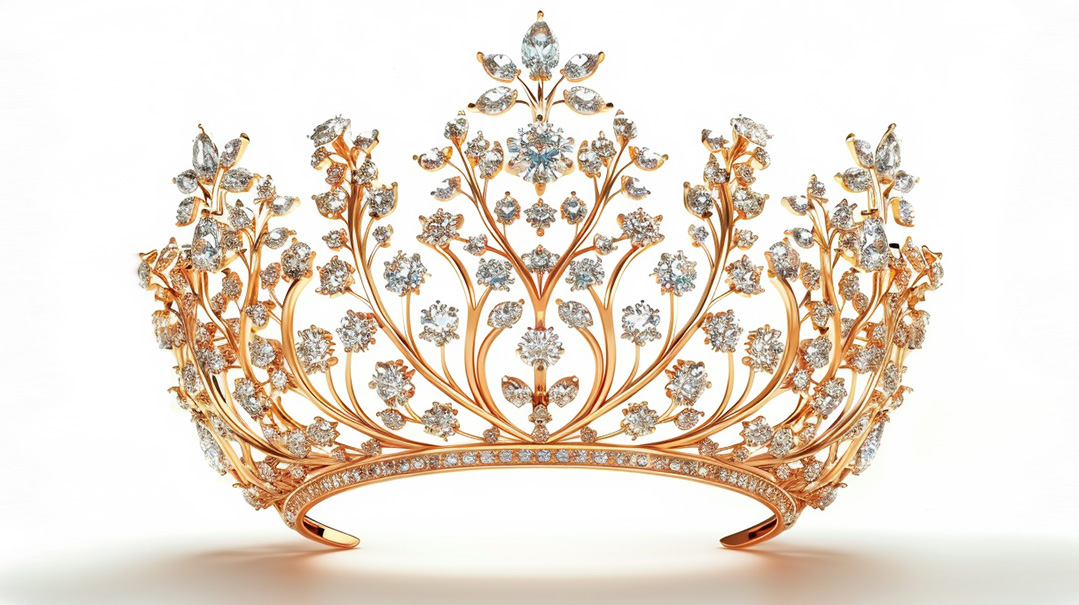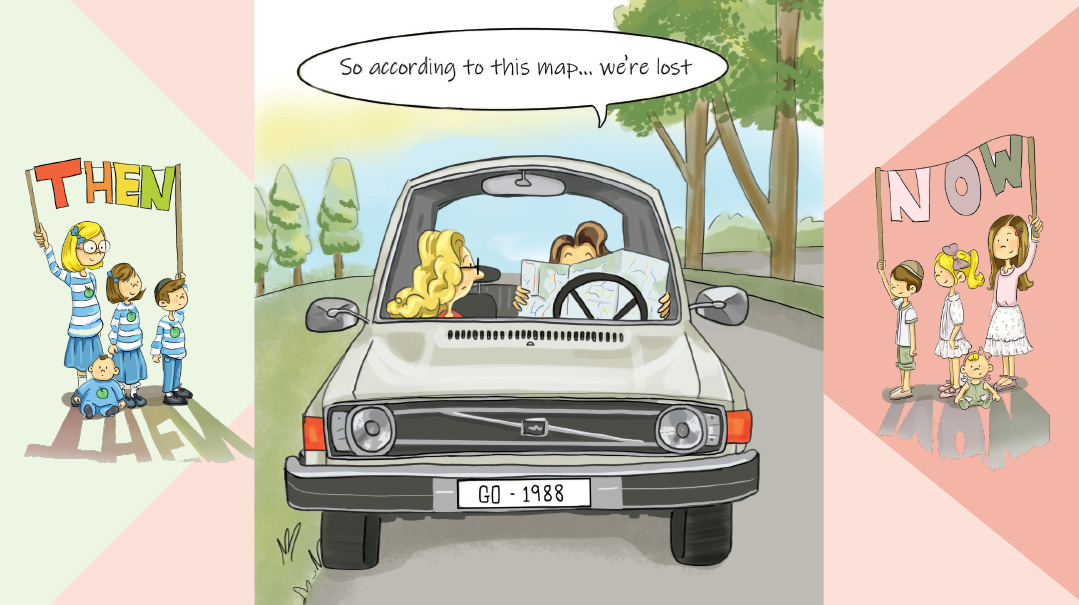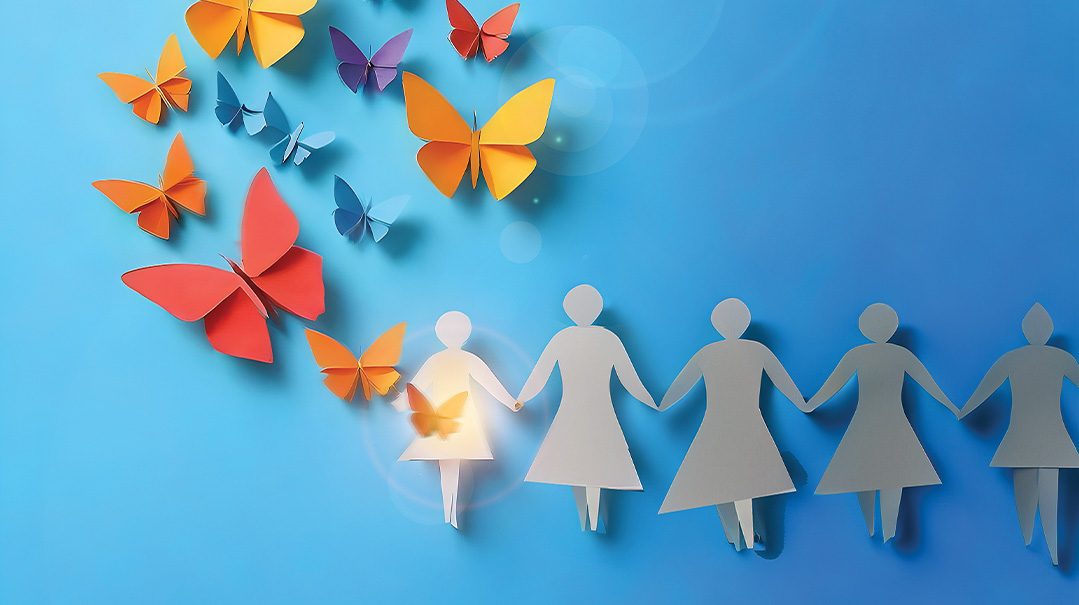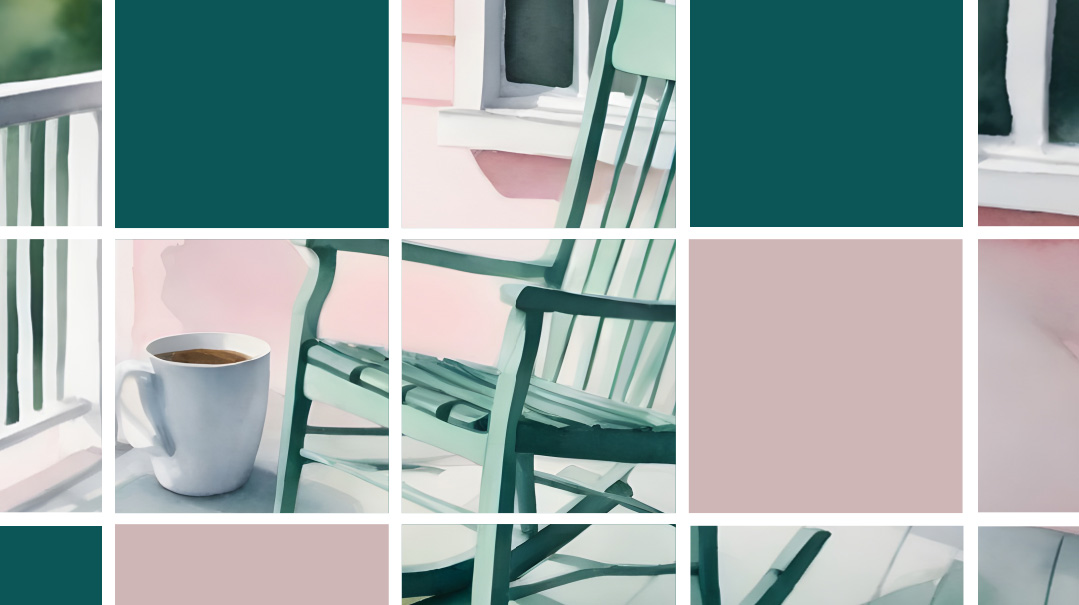In the Cocoon of Challenge
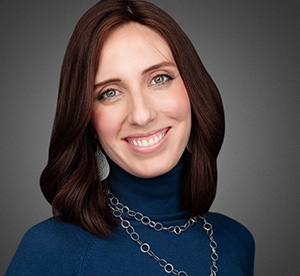
My struggle with HG forced me to look at suffering in a new way
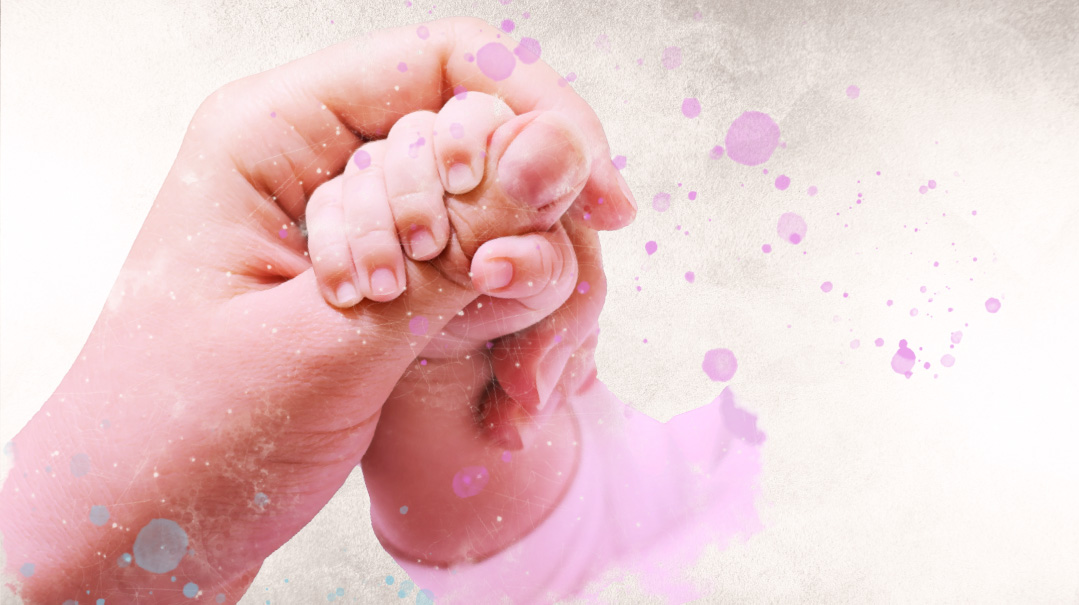
As told to Esther Kurtz by Rebbetzin Ruthie Halberstadt
When the bombshell of hyperemesis gravidarum (HG), extreme nausea and vomiting of pregnancy, hit me when I was expecting my first child, I didn’t know what was happening to me. I’d never been sick before in my life, and I struggled on every level.
Many people today are familiar with HG. They’ve read about it as some sort of horror condition; maybe they know someone who has it. Going back 20 years, that awareness and knowledge wasn’t there.
When I first experienced the condition, I tried fighting the overwhelming, unrelenting nausea tooth and nail. I couldn’t keep down any food, I got dehydrated and needed hospitalization. That’s the CliffsNotes.
At 27, after two more HG pregnancies, I was done. I couldn’t go through that again. Rabbanim agreed, and I was okay with it. The thought occurred to me though: if I could have a different, more positive experience with the condition, would I do it again? The answer was a resounding yes! I felt I had an achrayus to learn everything I could to see if it was possible to experience the condition more positively.
As a doctor’s daughter, I knew how to look and how to ask, but there were no answers. Modern medicine had no prevention, no cure for this condition.
Off the Beaten Path
I started looking into holistic practices, like acupuncture and guided visualizations, as well as delving deep spiritually, speaking to rabbanim, learning from sources with my husband, Rabbi Ilan Halberstadt, and my father, Rabbi Akiva Tatz, to understand and put myself in a better position if I were to have more children.
When challenges come, people often say, “You have what it takes to get through this.” I say, “Get the help you need to get through it!” Yes, Hashem put you in this particular situation to expand yourself, but that doesn’t mean you have that ability in you “as is,” without requiring help to access it.
I believe a three-pronged approach is necessary to address the complete manifestation of any challenge: practical, emotional, and spiritual.
For me, this is what it looked like:
Practically: how could I set up my life in a way that would allow me to be on bed rest? Think childcare, cleaning help, etc. And medication. There’s a popular idea that medication is too dangerous to use in pregnancy, even for severe HG. But that is wrong: as I document in my book, we now have very effective and very safe medications, some of which can even be used in the first trimester. This is a critically important part of treating HG in the modern world.
Emotionally: Doing holistic work, understanding the mind-body connection, its integration and practicing it through guided visualization, breath work, yoga, and the like.
Spiritual: Asking what the Torah has to say about nisayon, challenge.
We’re not meant to be passive and let a nisayon “happen” to us, as if we’re martyrs. We’re meant to engage, accept, and forge new pathways and modes of being.
While I was down this rabbit hole, people started finding me. “I hear you have difficult pregnancies. I do, too. What helps?”
As I learned and worked on myself, I’d share and suggest useful information with others. For example, I needed to learn how to take care of myself before needing to take care of myself. Most women can relate to that. I preemptively took off from work to recharge before I was desperate for a mental health day. It sounds obvious, like common sense these days, as looking after yourself is all the rage, but few women follow through and do it. Women don’t give themselves permission to do it, but wait, we’ll get to that concept soon.
After about two years of “preparation,” I felt ready to climb my Everest.
Testing, Testing
Physically, my fourth pregnancy was an HG pregnancy, no question, but with all the preparation I did, the experience was completely different. I didn’t vomit once during that pregnancy (but was nauseous, I barely ate, and I lost over 20 pounds in six weeks). I didn’t get dehydrated or need hospitalization, and most of all, I didn’t suffer.
Was I challenged? Yes!
Was I in pain? Yes!
Did I struggle and suffer? No!
As I have said, there is no medical cure, but there is safe medication that can mitigate the symptoms significantly. Finding the right combination of meds, alongside deep internal work, mindset, and a great support system can alleviate the worst effects of HG. This works not just for HG, but all challenges in life.
It’s a funny thing to say, but though I was sicker in my last pregnancy, I suffered more in my first. I know it sounds crazy. During the early pregnancies, I fought HG. The resistance made it worse. During my last pregnancy I was guided by specialists who were familiar with HG, started taking medication right away, put myself preemptively on bed rest, and when I ventured out of my bedroom on a day that I was feeling up to it, my 14-year-old son said, “Ima, this is the first time in 57 days you’ve left your room.”
That gives you a glimpse of the severity of HG, but the truth is, I hadn’t been counting the minutes. Don’t get me wrong, I had a few major tantrums and even periods of despair. Just because you do the work, there will always be moments that bring you to your knees and remind you Who’s in charge. We’re not malachim, we’re human.
There was one time where I asked my father if Hashem was mocking me because I brought this upon myself. My father assured me that Hashem wasn’t, because I was doing a mitzvah.
Going deep and dark when suffering from HG is common. On the whole though, I wasn’t like a prisoner scratching lines on the walls to count the days. People would visit and they wouldn’t want to leave my space, it was so serene. I’d cocooned myself. Those around me knew what I needed, provided the permission and enormous support for putting it into place, and I myself knew how to manage and work with it, most of the time.
In contrast with the Western view, which says we must fight whatever is challenging us, the Torah teaches us that being powerful and effective is sometimes achieved through resilience and endurance of the things that are difficult in life, as much as, or even more than, being productive and achieving in the conventional sense. I learned to embrace that concept.
What Challenges Are All About
Going deep, understanding what challenges are for us as people, for our neshamos, was part of the work I had to do. I also had to understand what this challenge was forcing me to acknowledge, develop, or surrender in myself or my life.
Looking at the challenges from the perspective of “permission” was incredibly helpful. It took a lot of introspection to even allow myself to approach this angle of, “What did this challenge give me permission to do or be?”
I’ve found that most women who suffer from HG are a type — Type A that is. Go, go, go, can do it all, can be it all. For me, HG made me stop and just be. It gave me permission to value myself when I felt like I was literally doing nothing. Lying in bed, you can’t get up for “just one second” or “give extensive directions on housekeeping”; you just be. Embracing and recognizing the value in being is tremendous for go-getters who are always on the move and value themselves by the number of things they’ve checked off on their list.
It’s not that the “permission” is a side benefit of struggle, but rather it’s one of the primary reasons you’re given that struggle. You should have the courage and seek the insight to ask yourself and find answers to: “What do I need to do, to achieve, to understand, in order to ace this nisayon?” Delving into “permissions” is just one aspect of the work.
Challenges force the old order to break down, and push you to develop new skills and techniques. You learn a new “language” and thereby expand spiritually, which is the purpose of life. Instead of the “Why Me” tantrums, we can connect to Hashem. Though they may feel excruciatingly isolating, challenges are Divine compliments.
All the work I’ve done, I had to do anyway. Meaning my core essence, my neshamah, needed to learn these lessons. This situation just fast-tracked my growth. I learned so much about myself and I know I would never have made the time or the space to do this work, to reach out to the people who could enable me to expand my consciousness like this, unless I was pushed so far that I had to.
I never wanted to be that person who said, “I’m so happy I went through something difficult” or “It was worth it.” But when you do what your challenge asks of you, and you see what amazing expansion of self comes from it, yes, you become that person who thanks Hashem for their challenges.
Suffering highlights what’s really important in life. When we read women’s diaries after they pass on, they often write: “Hug your kids more, sing more, smell the flowers….” They don’t write, “Make sure your children are always, always matching, make sure you always have at least two side dishes at every meal!”
I wish we could learn all this vicariously, to do the work before we’re forced to. For me, I ask myself what is it that I can say, “For this I was created!” my “Le’chach notzarti.” This is a personal journey; everyone has their own path to walk. You can’t take someone else’s “Aha!” moment as your own; you need to get there yourself.
Understanding the Mindset Shift
People may point to me and say, “There’s an end point to every pregnancy, but what about those with chronic conditions, or challenges with no defined end?”
HG is my access point to challenge and suffering, so that’s where I did all the deep work and where my understanding of the topic starts. When you pick any struggle that may seem superficial — weight, parenting, parnassah, health — we can ask: what is it all for, and how are we supposed to approach it? What’s the idea, concept, and role of suffering in Torah, particularly for women? Through the lens of HG, I explore suffering and challenges and how we might respond to it differently than we’ve been doing all along.
What you also need to understand about HG is that it completely subsumes you. You don’t remember what it ever felt like to feel good, or that you could possibly ever feel better. You can’t think about the fact that you’re pregnant and you’ll have a baby. It’s all-consuming and blurring; in the moment it feels like hopelessly forever.
Too often we approach challenges with the attitude of, “Let me get over this and then I’ll get back to my life.” No, no, no — this is life. This is the point. When you suffer, you can’t climb out or just ignore your situation. You’re forced to acknowledge it. Everything else takes a back seat. Your role in life now is only survival. Accepting that is a paradigm shift. Part of reaching that point and accepting it requires us to have a deep understanding of the Torah concept of klalah in general.
So What Is Klalah?
We often understand klalah as a curse, a punishment. A deeper understanding of klalah is that it’s a reconstruction. It’s plan B, the natural repercussion of the cheit. It’s the often difficult and painful process that is required to rebuild, to eventually bring the world to its original intended state of perfection.
This relates to the klalos of Chava specifically. We need to understand that we are not suffering “because of her” as many women say, but rather that we are her. Every woman carries a piece of Chava’s neshamah, her essence. So when we engage and endure with maturity, responsibility, and halachic guidance, the stuff for which we were created, we construct ourselves and fix and heal the world most powerfully.
Looking through the klalos of Chava we can see how it innately builds us to our best, even though it may seem like something to resent. Take the klalah “Vehu yimshal bach — he will rule over you.” People think it’s the conventional “patriarchy” that the Western feminist seeks to rebel against.
I understand it differently, as the natural neediness a woman has. The need to be her husband’s number one, before anything, the need to be nurtured and taken care of by her husband. When a person has that awareness, it automatically shifts the balance in a relationship.
Accepting that neediness, knowing it’s innate, and not fighting it, unlike the Western “independent” women we think we want to be, will allow us to reach our full potential and tikkun. What that means practically is receiving from our husbands, allowing ourselves to be, accepting ourselves as we are, rather than fighting it (and our husbands!) all along the way.
Receiving with grace allows a woman to be become a great nurturer and giver herself.
Bnei Yisrael’s relationship with Hashem is compared to a husband and wife, with Bnei Yisrael as the receiving, accepting woman. When we accept our humanity and allow ourselves to receive from Hashem is when we are most powerful.
What Am I Doing Here?
Struggles lead people to ask the obvious questions of “Why?” and “What am I in this world for?” I would love to shout from the rooftops that everyone needs to find their “le’chach notzarti,” the reason why they are here, what is their unique tafkid.
Women often confuse and conflate tafkid and tikkun. I heard a wonderful teacher once say: “Some stuff is tafkid, some is tikkun.” Tafkid is the stuff that makes your heart sing. And tikkun is the stuff that’s tailor-made baggage for you to carry.
The necessary avodah is engaging both those areas with focus, energy, and passion.
Why Do Things Happen?
Even when we think we’ve done the tafkid/tikkun work, something difficult happens in life, as it’s wont to do, and we ask, “Why?” This is the primary hashkafah question. I’ve asked it, too.
The Ramchal in his masterpiece Derech Hashem discusses 12 reason why things happen in the world. The list is definitive, meaning there are no other reasons; whatever happens must be for one or more of those reasons. The tricky part is that we don’t have nevuah, we can’t know what the specific reason is in any particular situation, we can only guess at it.
Coming Full Circle
After giving birth to one of my children, I said to my husband: “After all that, I get to have a baby, too?!” All the work I’d done, everything I’d been through, was so intrinsically rewarding, I perceived having a baby as a huge bonus. I know it sounds crazy, but when you do the work, when you really engage with your neshamah, you can say that and mean it.
Alongside her husband, Rabbi Ilan Halberstadt, Ruthie is rebbetzin of Machzikei Hadas shul in London. She’s also a longtime educator, teaching Torah at the high school, seminary, and adult level. She also lectures at TAL in London. She recently published a book, Hyperemesis: A Spiritual Perspective. In it, she explores suffering and challenges through the lens of HG, and how we might respond to them differently than we’ve been doing all along.
(Originally featured in Family First, Issue 849)
Oops! We could not locate your form.


